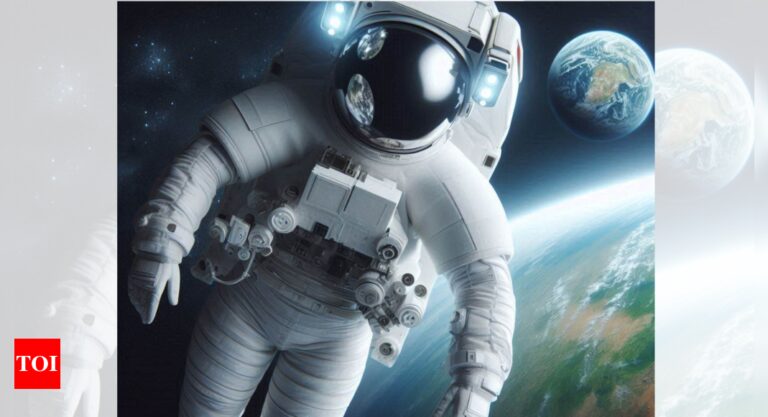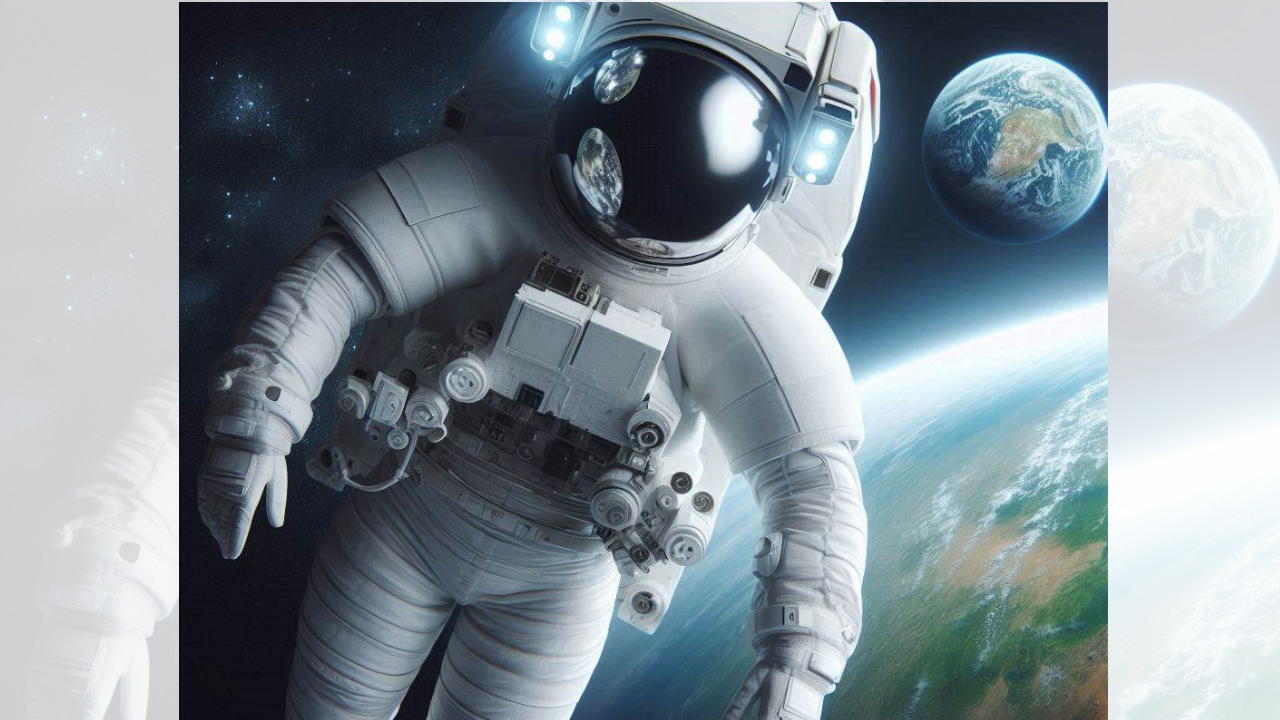
[ad_1]
Scientists have developed an innovative solution to address the challenges astronauts face when nature calls during spacewalks outside the International Space Station (ISS). The current method involves wearing a disposable diaper inside the spacesuit, known as a maximum absorbency garment (MAG), which can lead to physical discomfort, skin irritation, and infection during lengthy spacewalks that can last up to eight hours.
Additionally, MAGs do not recycle the water in urine, limiting astronauts to a fixed supply of 0.2 gallons (0.95 litres) of water carried in an in-suit drink bag.
The proposed system consists of an undergarment made from a flexible compression material lined with antimicrobial fabric, featuring a humidity sensor that detects urine within a silicone cup beneath the wearer’s genitalia.
Upon detecting urine, a vacuum pump is activated, drawing the urine into a filtration device carried on the astronaut’s back. The filter, measuring 15 inches (38 centimetres) tall and 9 inches (23 cm) wide, transforms the urine into fresh water that can be delivered to the spacesuit’s drink bag within just five minutes, according to a report from Space.com.
Although still in its initial testing stage, the 17.6-pound (8-kilogram) filtration device has shown promising results in the lab, effectively removing the major components of urine and reducing salt levels to meet health standards.
If successfully developed, this system could prove invaluable for astronauts engaged in space exploration, particularly considering Nasa‘s plans to establish a permanent outpost on the moon by the end of the decade.
As Sofia Etlin, the lead study author and researcher at Weill Cornell Medicine, explained to Live Science, “Getting urine away from the body as quickly as possible should reduce some of the health complications that astronauts are currently experiencing like rashes, urinary tract infections, and digestive distress.”
Furthermore, Etlin noted that “the greater overall supply of water that our system generates will keep the astronauts hydrated.”
The size and battery capacity of spacesuits are restricted, so the new system’s weight and power needs would have to be carefully evaluated. Nevertheless, the authors argued in the paper that enhancing astronauts’ well-being and performance, as well as providing them with sufficient water for emergencies, is a worthwhile compromise.
“When it comes to sending new technology to space, the process is quite time intensive,” Etlin said. The filtration system has been tested by the team, “but further study with humans will be required to maximise fit and comfort.”
The team must also ensure that the device functions properly under conditions that are realistically encountered in space, such as microgravity. If the spacesuit passes tests on Earth, it will then be evaluated during actual spacewalks from the ISS.
“Our system would likely only be implemented into new spacesuits according to their specifications, which would require some further tailoring of the technology,” Etlin said. “So we’ll definitely not see astronauts diaper-free next year, but you can never tell what the future holds,” Etlin added.
Additionally, MAGs do not recycle the water in urine, limiting astronauts to a fixed supply of 0.2 gallons (0.95 litres) of water carried in an in-suit drink bag.
The proposed system consists of an undergarment made from a flexible compression material lined with antimicrobial fabric, featuring a humidity sensor that detects urine within a silicone cup beneath the wearer’s genitalia.
Upon detecting urine, a vacuum pump is activated, drawing the urine into a filtration device carried on the astronaut’s back. The filter, measuring 15 inches (38 centimetres) tall and 9 inches (23 cm) wide, transforms the urine into fresh water that can be delivered to the spacesuit’s drink bag within just five minutes, according to a report from Space.com.
Although still in its initial testing stage, the 17.6-pound (8-kilogram) filtration device has shown promising results in the lab, effectively removing the major components of urine and reducing salt levels to meet health standards.
If successfully developed, this system could prove invaluable for astronauts engaged in space exploration, particularly considering Nasa‘s plans to establish a permanent outpost on the moon by the end of the decade.
As Sofia Etlin, the lead study author and researcher at Weill Cornell Medicine, explained to Live Science, “Getting urine away from the body as quickly as possible should reduce some of the health complications that astronauts are currently experiencing like rashes, urinary tract infections, and digestive distress.”
Furthermore, Etlin noted that “the greater overall supply of water that our system generates will keep the astronauts hydrated.”
The size and battery capacity of spacesuits are restricted, so the new system’s weight and power needs would have to be carefully evaluated. Nevertheless, the authors argued in the paper that enhancing astronauts’ well-being and performance, as well as providing them with sufficient water for emergencies, is a worthwhile compromise.
“When it comes to sending new technology to space, the process is quite time intensive,” Etlin said. The filtration system has been tested by the team, “but further study with humans will be required to maximise fit and comfort.”
The team must also ensure that the device functions properly under conditions that are realistically encountered in space, such as microgravity. If the spacesuit passes tests on Earth, it will then be evaluated during actual spacewalks from the ISS.
“Our system would likely only be implemented into new spacesuits according to their specifications, which would require some further tailoring of the technology,” Etlin said. “So we’ll definitely not see astronauts diaper-free next year, but you can never tell what the future holds,” Etlin added.
[ad_2]
